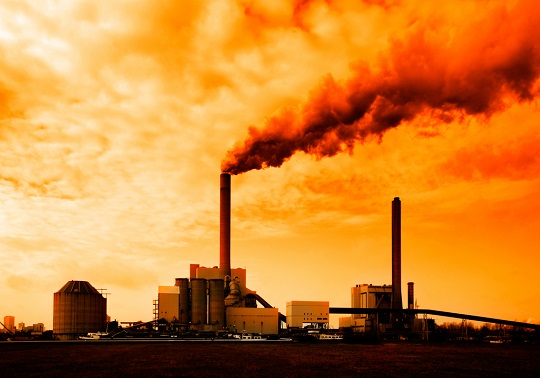
Geographer Richard Heede has compiled a massive database quantifying who has been responsible for taking carbon out of the ground and putting it into the atmosphere. Working alone, with uncertain funding, he spent years piecing together the annual production of every major fossil fuel company since the Industrial Revolution and converting it to carbon emissions.
The result, peer reviewed and published in Climatic Change, showed that just 90 companies contributed 63% of the greenhouse gases emitted globally between 1751 and 2010. Half of those emissions took place after 1988—the year James Hansen of NASA testified to Congress that there was no longer any doubt that global warming had begun.
The data "just blew me away," says Naomi Oreskes, a science historian at Harvard University and co-author of the book Merchants of Doubt, which compares the fossil fuel industry to the tobacco industry in its efforts to raise doubts about science. "Everyone talks about this as a problem since the Industrial Revolution, but I now think that's incorrect," she says. Heede has shown that the roots of the problem are more recent and easier to trace. In 2011, Oreskes joined Heede in creating the Climate Accountability Institute, a nonprofit devoted to quantifying the contribution of fossil fuel companies to climate change and investigating their alleged attempts to obfuscate the science.
Sharing the blame
Other people criticize the work as oversimplified and naïve. David Victor, a political scientist and energy policy specialist at UC San Diego and a co-author of the 2015 Intergovernmental Panel on Climate Change report, doesn't question Heede's numbers but says his approach is wrongheaded. "It's part of a larger narrative of trying to create villains; to draw lines between producers as responsible for the problem and everyone else as victims. Frankly, we're all the users and therefore we're all guilty. To create a narrative that involves corporate guilt as opposed to problem-solving is not going to solve anything."
Heede concedes that the responsibility is shared. "I as a consumer bear some responsibility for my own car, etcetera. But we're living an illusion if we think we're making choices, because the infrastructure pretty much makes those choices for us." He focused on fossil fuel companies, he says, because unlike industries that produce greenhouse gases as a byproduct (such as the automobile industry, which has adhered to increasingly strict mileage standards), the mission of fossil fuel companies is to pull carbon out of the ground and put it into commerce.
His data, together with an emerging line of research that uses computer models to discern how likely it is that a given storm, flood, or heat wave was related to human-caused emissions, are now driving efforts to allocate responsibility for climate change. Last year, for instance, several nongovernmental organizations in the Philippines filed a petition with that nation's Commission on Human Rights. It asks the "carbon majors" to take remedial actions on behalf of typhoon survivors in the islands, which suffer devastating storms that may have worsened as a result of climate change. "Heede's report is one of the bedrock pieces of science and research that helped form our campaign," says Kristin Casper, litigation counsel for Greenpeace's Global Climate Justice and Liability Project in Toronto, Canada. In late July, the commission sent orders to 47 of the world's largest investor-owned fossil fuel companies, asking them to respond to the human rights charges in the petition. Similar actions and lawsuits are proceeding in several other countries.
The original piece was published at Science.








